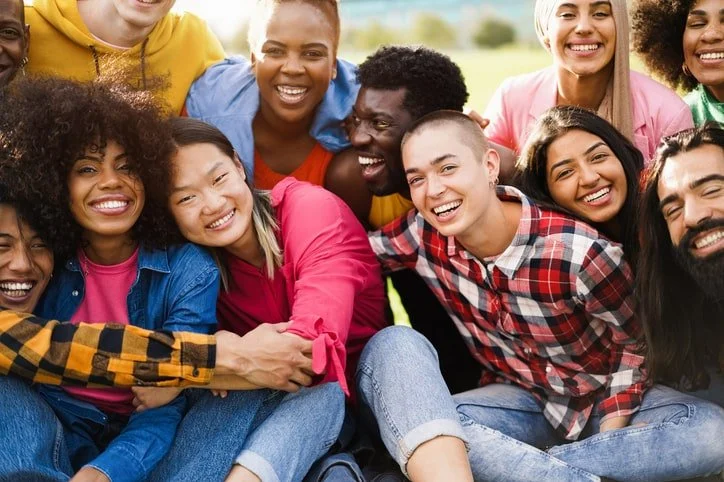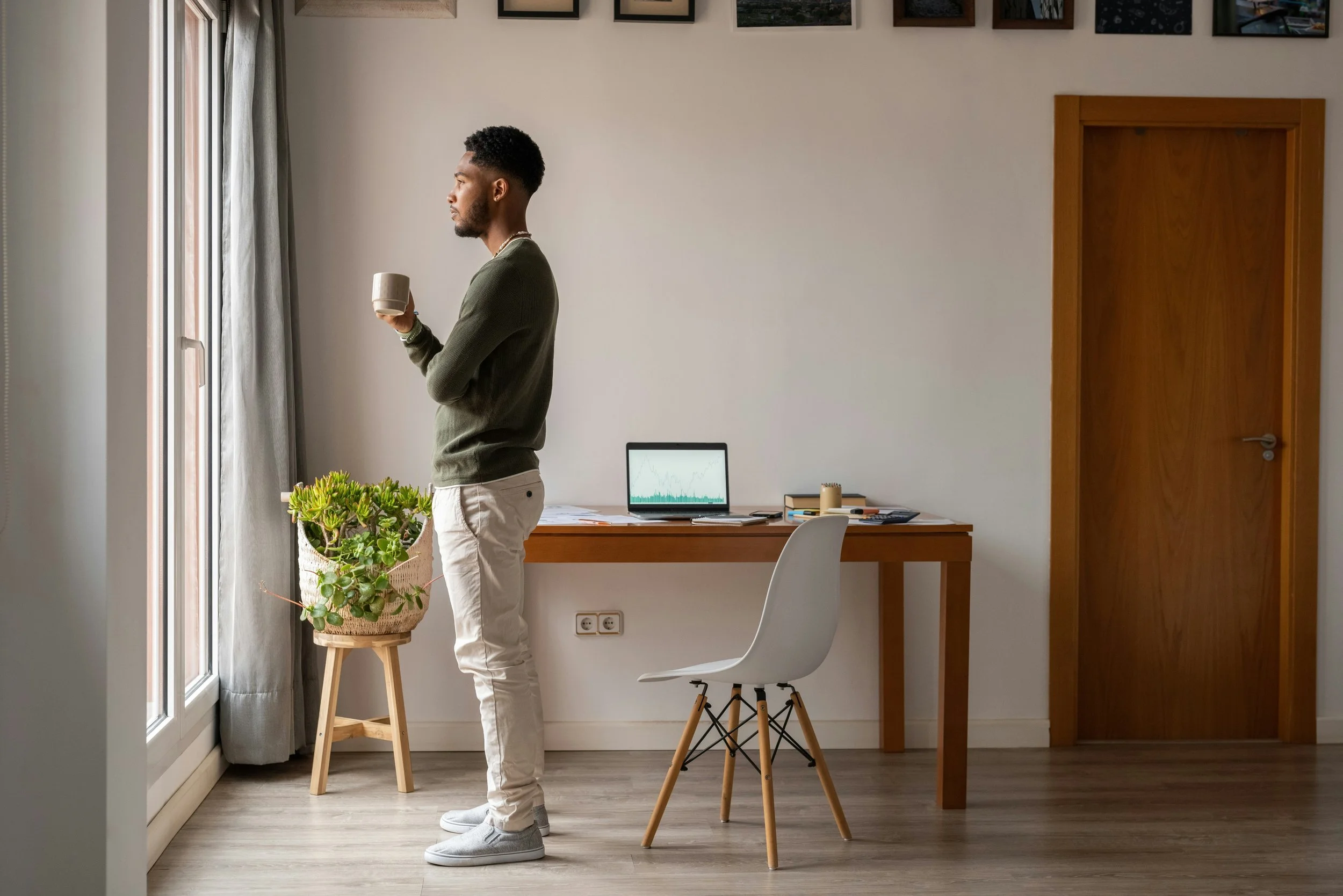What We Carry: How Personal History Shapes Healing—and How the World Sees Us
You’ve probably felt it before—that invisible weight you carry into every room. The assumptions people make about you before you even open your mouth. The labels that stick no matter how much you’ve grown.
Whether you're someone seeking healing or someone helping others heal, it’s important to understand one thing: your personal history isn’t just in your past—it shapes how people treat you, how you treat yourself, and how healing unfolds.
In both therapy and life, we carry more than just our stories. We carry our families, our neighborhoods, our cultures, our traumas, our reputations, our shame, our resilience—and all of that shapes the way the world sees us... and how we see ourselves.
This blog is for you if:
You’ve ever felt judged for your past.
You’re working toward healing and want to understand the deeper layers of what shaped you.
You’re a helping professional (or studying to become one) and want to better support clients with compassion and cultural awareness.
You’ve ever wondered, “Why do people see me this way—and how do I stop carrying that weight?”
Let’s explore the bias, misinformation, and perspectives that shape healing—and how we can all start to unpack what we carry.
What Is Bias and Why Does It Matter in Healing?
Bias is like wearing tinted glasses you don’t even realize you’re wearing. It colors how you interpret what you see, even when you think you're being objective. We all have them—yes, even therapists, teachers, parents, friends, students, and people who genuinely mean well.
Bias is a judgment, belief, or assumption that we make about someone based on their identity, behavior, or past. Some biases are explicit (we know we have them), and others are implicit (we don’t realize they're there).
In healing, bias shows up when:
A provider assumes someone is exaggerating their pain or trauma.
Someone struggling with anxiety is told they're "just being dramatic" or "need to calm down," rather than being met with understanding.
A loved one thinks relapse means someone “just doesn’t want it bad enough.”
Society labels someone a “lost cause” because of their background.
These judgments affect the care people receive, the support they get (or don’t), and the way they start to view themselves. If you're working to heal from trauma, addiction, or anxiety—and especially if you're Black, Brown, LGBTQIA+, or have experienced poverty—bias can feel like another layer of trauma you have to fight through.
Your Story Isn’t Just Yours—It’s Also How Others Read You
Let’s get real: people don’t see you as a blank slate. They see your clothes, your body, your skin color, your accent, your past, your relationships, your coping skills (or lack of them)—and they make assumptions.
Sometimes those assumptions are helpful, but often they’re hurtful. For example:
A young Black man walking into a room might be seen as “intimidating” instead of intelligent, kind, or simply human.
A queer woman expressing emotions in therapy might be labeled “dramatic” instead of working through trauma.
A single mom with a substance use history might be seen as “irresponsible” rather than someone surviving in impossible conditions.
A person who’s quiet or reserved might be labeled “cold” or “difficult” rather than someone coping with anxiety, trauma, or social exhaustion.
Someone with ADHD might be seen as “lazy” or “scattered” instead of someone managing a brain that works differently—and beautifully.
These judgments are based on social narratives, not truth. And they show up in therapy, hospitals, classrooms, families—even in your own head.
Healing starts when we name what we’re carrying, and what others have placed on us without consent.
Why Understanding Bias Matters for Therapists and Other Providers
If you're a helping professional supporting people through recovery and/or mental health struggles, here’s the truth: you can't help someone heal if you’re unaware of your own biases.
Even well-meaning providers can unintentionally harm if they:
Assume cultural behaviors (like not making eye contact or avoiding vulnerability) mean someone isn’t "engaged."
See addiction as a character flaw instead of a coping mechanism rooted in trauma.
Treat all clients the same, without recognizing how race, gender, or sexual orientation change someone’s experience of therapy.
Therapy isn’t neutral—it happens in a world full of inequality and trauma. And if we ignore that, we fail the people who need support the most.
Trauma Lives in the Body—and the Bias Around It Lives in Systems
When we talk about trauma, we’re not just talking about what happened to you—we’re also talking about how it lives in your nervous system. Maybe your body gets tense in certain places, your heart races when you're triggered, or your mind goes blank during conflict. That’s not you being “too emotional”—that’s your survival brain doing its job.
But when people don’t understand trauma, they judge the symptoms:
"Why do you overreact to everything?"
"Why can’t you just calm down?"
"You always make things about race/gender/your past."
These messages don’t help. They create shame.
Bias adds layers of shame to trauma. And shame is one of the biggest obstacles to healing.
Recovery Is Not One-Size-Fits-All
We also need to say this loud and clear: healing looks different for everyone. Especially for people carrying generational trauma, cultural trauma, and systemic oppression.
If you're in recovery—whether that’s from trauma, toxic relationships, substance use, or just trying to survive—you might feel like you're being measured against standards that don’t reflect your reality.
Maybe you’re finally saying no to people who drain you, even if it feels uncomfortable. That’s healing.
Maybe you’re allowing yourself to rest without guilt after years of survival mode. That’s progress.
Maybe you’re choosing not to go back to people or patterns that kept you stuck. That’s recovery.
Maybe you’re still having hard days, but you’re not reaching for substances to numb the pain anymore. That’s growth.
Maybe you’re learning how to parent differently than you were parented. That’s generational change.
We have to be careful not to judge healing based on someone else’s timeline or method. Especially in BIPOC and LGBTQIA+ communities, recovery often includes reclaiming identity, rejecting shame, and redefining what safety means.
Why We Specialize in Supporting Marginalized Communities
At Mindful Healing Counseling, we made a very intentional choice about who we serve—because we know what it feels like to not be fully seen, heard, or understood in the therapy room.
Too many women have been told they're "too emotional" or expected to carry everything without breaking.
Too many Black and Brown clients have had their pain minimized or their strength mistaken for not needing help.
Too many LGBTQIA+ individuals have been forced to educate their therapists while trying to heal.
That’s not how therapy should feel.
We specialize in supporting women, people of color, and LGBTQIA+ communities because we believe that healing happens when your identity is affirmed, not ignored. You deserve therapy that understands cultural context, honors your lived experience, and doesn’t flinch when the conversation gets real.
We know that anxiety, trauma, and relationship struggles don’t exist in a vacuum. They’re shaped by racism, sexism, homophobia, generational pain, and systems that weren’t built for us.
Our therapists don’t just "get it"—they’ve lived it, studied it, and are constantly working to hold space that feels safe, soft, and empowering.
This isn’t just about therapy. It’s about liberation.
It’s about being able to say, “I don’t have to shrink here.”
It’s about finally exhaling.
You’re not too much. You’re not broken. You’re in the right place.
What Clients Wish You Knew: A Note to Helping Professionals
Many clients will never say this out loud—but over the years I’ve heard many of these statements (or something similar) from clients. Here’s what they wish more therapists and helpers understood:
“I’m not overreacting. I’m responding to years of being unseen and unheard.”
“Can you just try to understand where I’m coming from instead of trying to fix me?”
“I’m so tired of having to be strong all the time. I just want to feel safe for once.”
“When I say I’m fine, it usually means I’m barely holding it together.”
“Before you read about me, can you just see me?”
“My experience is REAL”
If you’re a counselor, social worker, psychologist, psychiatrist, doctor, or other professional, take those words seriously. Your ability to support someone’s healing has less to do with your training and more to do with your humility, curiosity, and ability to hold space without judgment.
For Clients: You’re Allowed to Be More Than Your Past
If you're someone who has been judged, dismissed, or labeled—you are not alone.
You’re not your trauma.
You’re not your diagnosis.
You’re not your lowest moment.
You are a human being who adapted to pain. Who found ways to survive. And now, maybe, you're trying to learn how to live differently.
That is brave.
At Mindful Healing Counseling Group, we see you. We work with women, Black and Brown folks, LGBTQIA+ people, and anyone who has ever felt “too much” or “not enough.” And we know how exhausting it is to always have to explain yourself.
Here, you don’t have to justify your healing. You just have to show up as you are.
What You Can Do Next (Whether You’re Healing or Helping)
For Clients:
Notice when you feel judged—and question whether the judgment is yours or someone else's.
Surround yourself with people who validate your experience.
Seek out therapy that feels culturally safe and identity-affirming.
Remind yourself daily: “My past does not define my worth.”
For Students and Providers:
Examine your own internalized bias. We all have it. Name it without shame.
Learn about cultural humility—not just cultural competence.
Don’t assume you know what someone needs. Ask, listen, adapt.
Reflect often: “Am I making this about my comfort or their healing?”
Final Thoughts: Unpacking What We Carry
Bias, misinformation, and judgment are heavy things to carry. But healing becomes more possible when we name them, challenge them, and replace them with understanding and care.
Your personal history is part of your story—but it’s not the whole book. Whether you're on a healing journey yourself or training to support others, remember: people deserve to be seen for who they are now, not just where they've been.
If you’re looking for therapy that gets it—really gets it—we’re here for you. At Mindful Healing Counseling, we do therapy differently. Come as you are. Let’s unpack what you’ve been carrying, together. We’ll be here when you’re ready.











